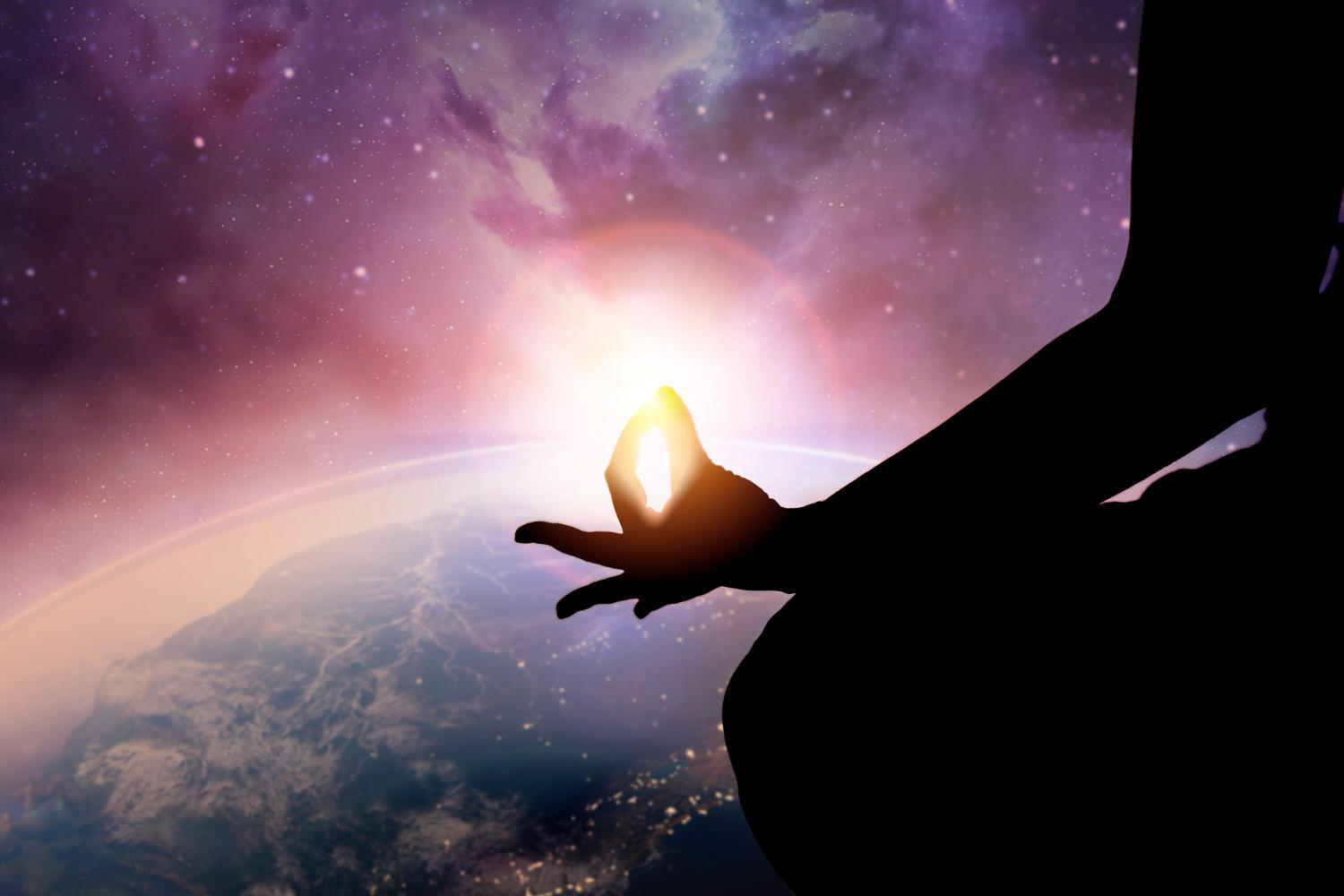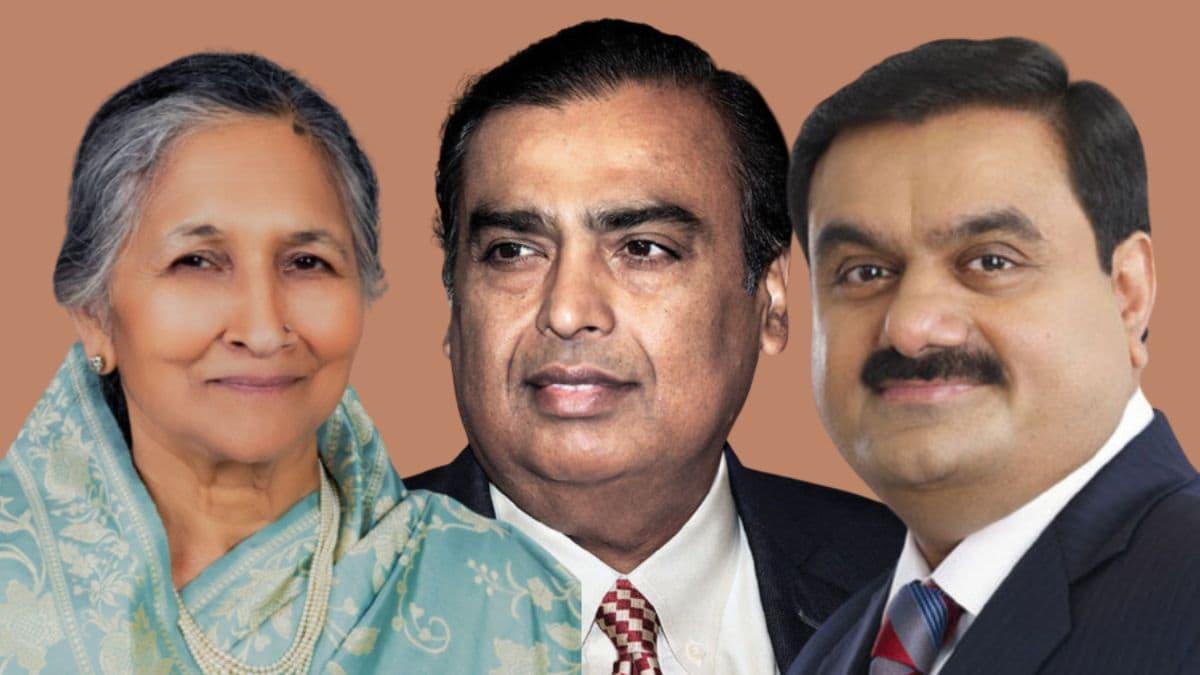India has always been a place full of amazing people. These men and women have done a lot to shape the country and have also made a big impact around the world. India has given us great leaders, smart scientists, and people who have worked hard to make the world a better place.
| Name | Field |
| Dr. A.P.J. Abdul Kalam | Scientist and former President of India |
| Dr. Sarvepalli Radhakrishnan | Philosopher and former President of India |
| Indira Gandhi | Former Prime Minister of India |
| Swami Vivekananda | Indian monk and philosopher |
| Pandit Jawaharlal Nehru | Lawyer and former Prime Minister of India |
| Mahatma Gandhi | Indian lawyer and political ethicist |
| Sardar Vallabhbhai Patel | Activist and former Deputy Prime Minister of India |
| B. R. Ambedkar | Jurist and former Minister of Law and Justice of India |
| Rajendra Prasad | Lawyer and former President of India |
| Atal Bihari Vajpayee | Poet and former Prime Minister of India |

Dr. A.P.J. Abdul Kalam: The Missile Man of India

Dr. A.P.J. Abdul Kalam, born on October 15, 1931, in Tamil Nadu, is one of the most inspiring personalities in Indian history. His birth anniversary is celebrated as World Students’ Day and this special day honours his commitment to education and his belief in the power of students. His legacy as an educator, author and visionary President is a source of inspiration for many.
A Glimpse of Dr. Kalam’s Life
Dr. Kalam, awarded the Bharat Ratna, started his journey in Rameswaram, Tamil Nadu. He had an impressive career, taking on important roles at DRDO and ISRO, India's leading space research organizations. In 2002, he took office as the 11th President of India, serving until 2007. Even after his presidency, Dr. Kalam's passion for teaching didn't wane. He became a visiting professor at various prestigious institutions. His remarkable contributions to Indian science and technology earned him top honors, including the Padma Vibhushan and Padma Bhushan awards.
Dr. Kalam's life and work continue to inspire generations, showing the power of dedication and the impact one individual can have on a nation’s progress.
Books Written By Dr. Kalam
Wings of Fire
This autobiography, published in 1999, chronicles Dr. Kalam's journey from his humble beginnings to becoming one of India's most respected scientists. It provides insights into his personal life, his scientific endeavors, and his vision for India's future.
India 2020: A Vision for the New Millennium
Published in 1998, this book presents Dr. Kalam's vision for India's development in the 21st century. He discusses various aspects such as technology, education, healthcare, and governance, emphasizing the need for innovation and self-reliance.
Ignited Minds: Unleashing the Power Within India
Released in 2002, this book focuses on the importance of education and youth empowerment. Dr. Kalam shares his thoughts on the role of education in shaping young minds and building a strong nation.
Other Must Read Books
- The Luminous Sparks: Published in 2004, this book is a collection of Dr. Kalam's speeches and writings on various topics, including science, technology, leadership, and spirituality. It offers insights into his philosophical and spiritual beliefs.
- Mission India: A Vision for the Future: Released in 2005, this book further elaborates on Dr. Kalam's vision for India's future. He discusses the importance of scientific research, technological advancements, and the need for India to become a global leader.
Dr. Sarvepalli Radhakrishnan
A renowned philosopher and statesman, Sarvepalli Radhakrishnan was the second President of India and his birthday is celebrated as Teacher's Day in India.
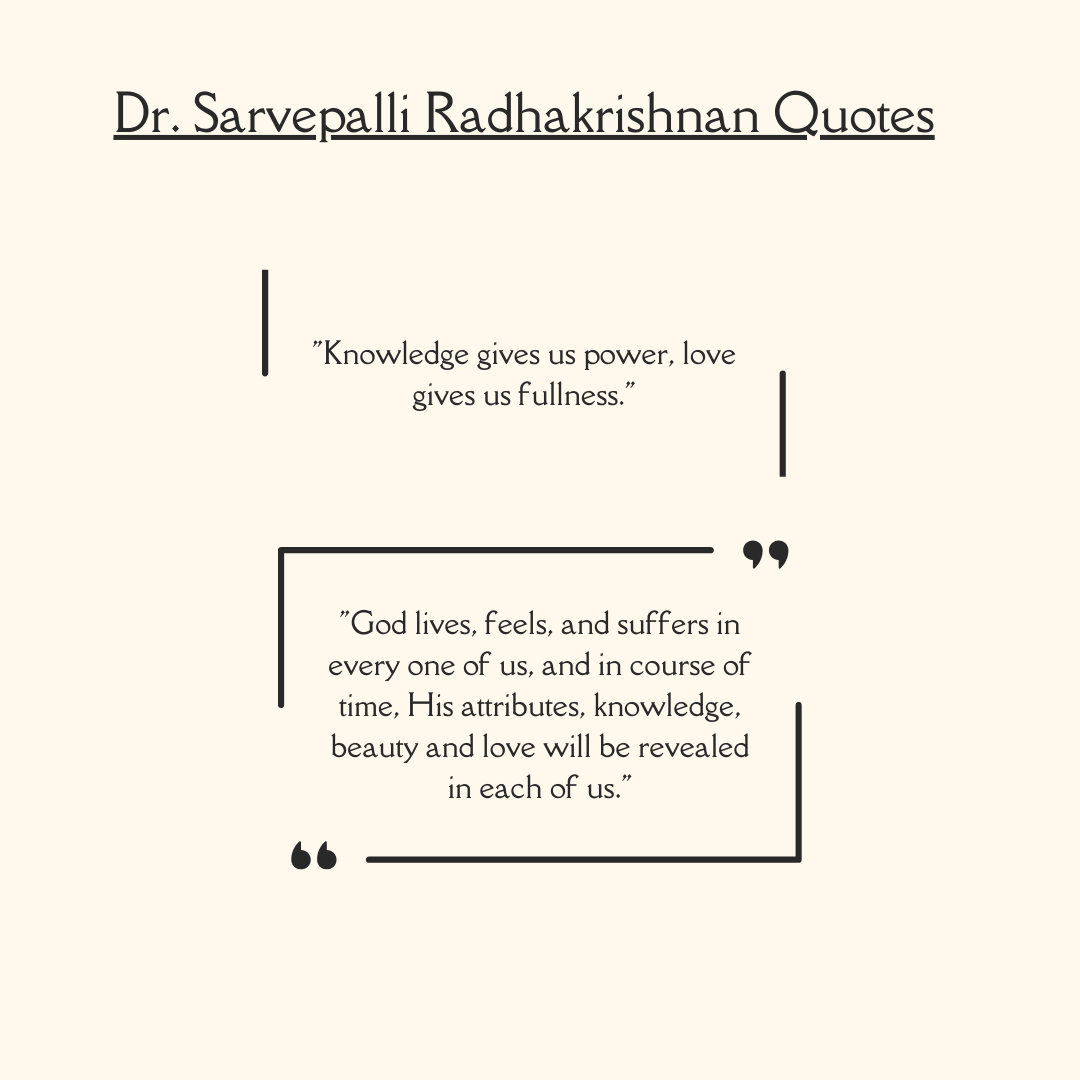
Dr. Sarvepalli Radhakrishnan was a philosopher and statesman born on September 5, 1888. He belonged to a Telugu-speaking Niyogi Brahmin family from Tiruttani, which was in the Madras Presidency of British India and is now part of Tamil Nadu, India. His father Sarvepalli Veeraswami worked for a local zamindar and his mother was Sarvepalli Sita. His family's roots were in the Sarvepalli village in the Nellore district of Andhra Pradesh.
Early Life and Work
Early Life
Growing up in Thiruttani and Tirupati, Radhakrishnan was a bright student who won various scholarships. His academic journey led him to the Department of Philosophy at the Madras Presidency College in April 1909.
Teacher's Day
By 1918, Radhakrishnan became a Professor of Philosophy at the University of Mysore, teaching at Maharaja's College in Mysore. There, he wrote notable articles for prestigious journals and completed his first book on Rabindranath Tagore's philosophy.
Idealist View of Life
In 1920, he published "The Reign of Religion in Contemporary Philosophy," and the following year, he joined the University of Calcutta as a professor. His academic journey took him to international stages, representing the University of Calcutta at various global conferences. In 1929, he delivered the Hibbert Lecture at Manchester College, Oxford, later published as “An Idealist View of Life.”
Contributions
His contributions to education were recognized in 1931 when he was knighted by George V. However, after India's independence, he chose to use his academic title of Doctor instead. Radhakrishnan served as the Vice-Chancellor of Andhra University from 1931 to 1936, and later at the University of Oxford as the Spalding Professor of Eastern Religions and Ethics.
He was nominated multiple times for the Nobel Prize for Literature from 1937 to the 1960s. In 1939, Radhakrishnan became the Vice-Chancellor of Banaras Hindu University (BHU), a position he held until 1949.
Awards and Legacy
Dr. Radhakrishnan was awarded India’s highest civilian honor, the Bharat Ratna, in 1954. In 1968, he received the Sahitya Akademi fellowship, a prestigious literary honour. Before he died in 1975, he was awarded the Templeton Prize for his commitment to nonviolence and his presentation of a universal reality of God.
Radhakrishnan served as India's first Vice President and its second President, significantly contributing to placing Indian philosophy on the global map.
Major Works
He authored many influential works, including-
- Indian Philosophy (two volumes)
- The Philosophy of the Upanishads
- An Idealist View of Life
- Eastern Religions and Western Thought
- East and West: Some Reflections
First Indian Female Prime Minister: Indira Gandhi
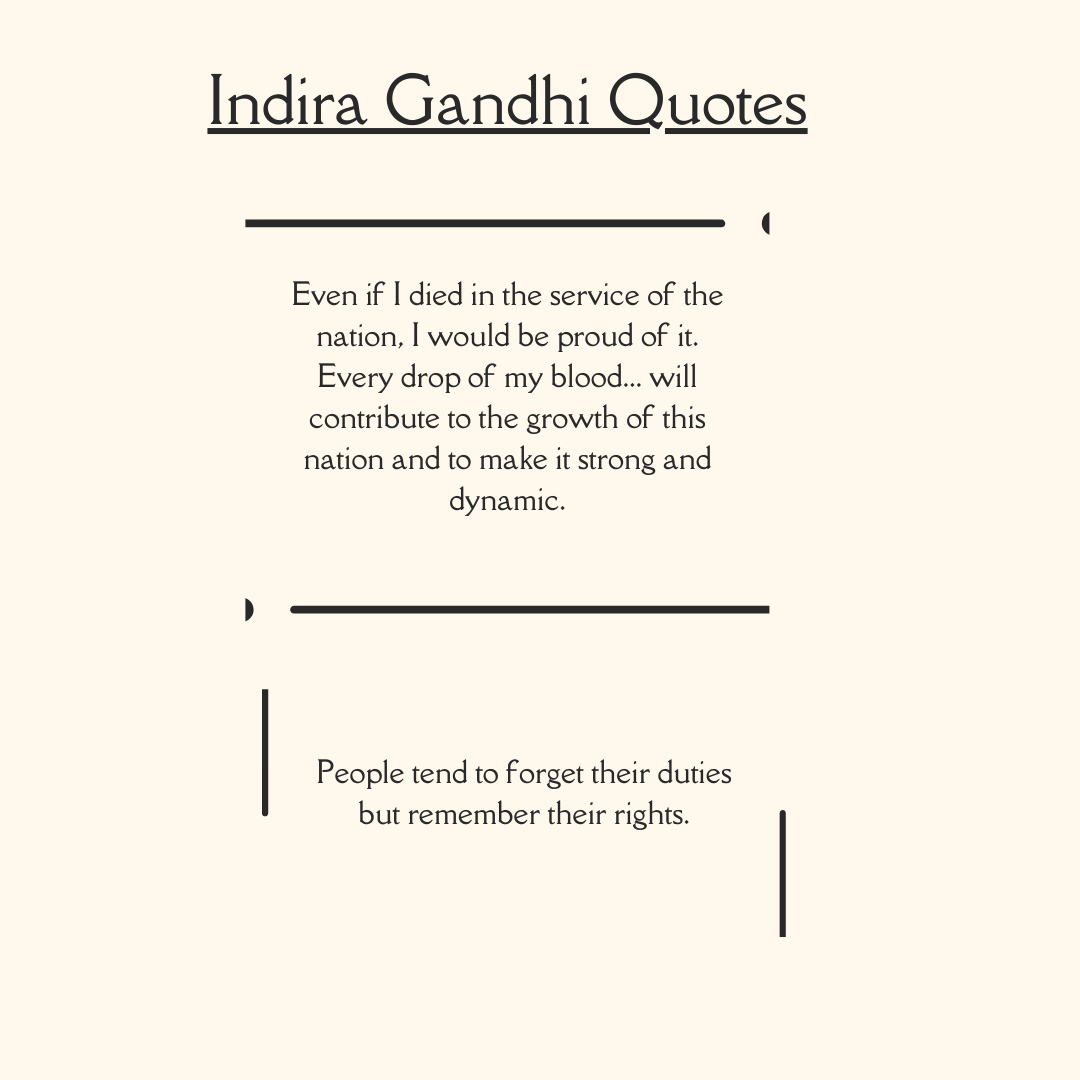
Indira Gandhi holds the distinction of being the first female Prime Minister of India.
Early Life
Born on November 19, 1917, as the daughter of Pandit. Nehru, Indira Gandhi had a rich educational background.
She completed her university education, earning a doctorate degree and receiving the Columbia University Citation of Distinction. On March 26, 1942, she married Firoz Gandhi and had two sons, Rajeev Gandhi and Sanjay Gandhi.
Political Career
Her political career began in earnest in 1955 when she joined the Congress Working Committee and participated in the party's Central Election. By 1958, she was serving on the Central Parliamentary Board of Congress.
She also played significant roles in the Women’s Department of the All India Congress Committee and the National Integration Council of the All India Youth Congress in 1956.
In 1959, Indira Gandhi was elected President of the Indian National Congress, a position she held until 1960 and then again in January 1978.
Between 1964 and 1966, she served as the Minister of Information and Broadcasting. She became the first Indian female Prime Minister in January 1966, a role she held until March 1977 and then again from January 1980 until her last day on October 31, 1984. She also chaired the Planning Commission in January 1980.
Honours
- Indira Gandhi received numerous honors, both nationally and internationally.
- In 1972, she was awarded the Bharat Ratna, India's highest civilian honor, recognizing her contributions to the nation.
- Internationally, she was honored for her role in the liberation of Bangladesh with the Mexican Academy Award in 1972.
- The Food and Agriculture Organisation (FAO) awarded her the 2nd Annual Medal in 1973.
- She also received various other accolades for her diplomatic and societal contributions, including the Sahitya Vachaspati by Nagari Pracharini Sabha in 1976, the Mothers’ Award in the U.S.A. in 1953, the Isabella d'Este Award of Italy, and Yale University’s Howland Memorial Prize.
- In 1971, the Argentine Society for the Protection of Animals conferred the Diploma of Honour on her.
Swami Vivekananda
One of the most famous people in India, Swami Vivekananda, is also credited for raising interfaith awareness.
Early Life and Education
Swami Vivekananda was born as Narendra Nath Datta on January 12, 1863, in Kolkata. He was a bright student with a keen interest in reading and spirituality. His encounter with Sri Ramakrishna, a mystic and yogi, deeply influenced him. Vivekananda became one of his most devoted disciples.
Founding of Ramakrishna Mission
After his return to India, Vivekananda founded the Ramakrishna Mission in 1897. This organization was dedicated to social service, education, and spreading Hindu philosophical teachings.
The mission worked towards helping the poor and the needy and played a significant role in uplifting various sections of society.
Journey to the West and the Parliament of Religions
In 1893, Vivekananda traveled to the United States to participate in the World's Parliament of Religions in Chicago. His speech there, which began with the words “Sisters and Brothers of America,” gained immense acclaim and recognition. He eloquently introduced Hindu philosophy to the Western world and emphasized the importance of religious tolerance and harmony.
Literary Contributions
Swami Vivekananda was a prolific writer. His works on Hindu philosophy, spirituality, and human values are considered significant. His writings provided insights into Vedanta and Yoga and made these philosophies accessible to a broader audience, both in India and around the world.
Legacy and Death
Vivekananda passed away on July 4, 1902. His teachings and life continue to inspire millions across the globe. In India, his birthday is celebrated as National Youth Day, reflecting his impact on the youth and his vision for a strong and enlightened nation.
Swami Vivekananda's life and teachings remain a beacon of knowledge and inspiration, emphasising the values of understanding and unity across diverse cultures and religions.
Pandit Jawaharlal Nehru
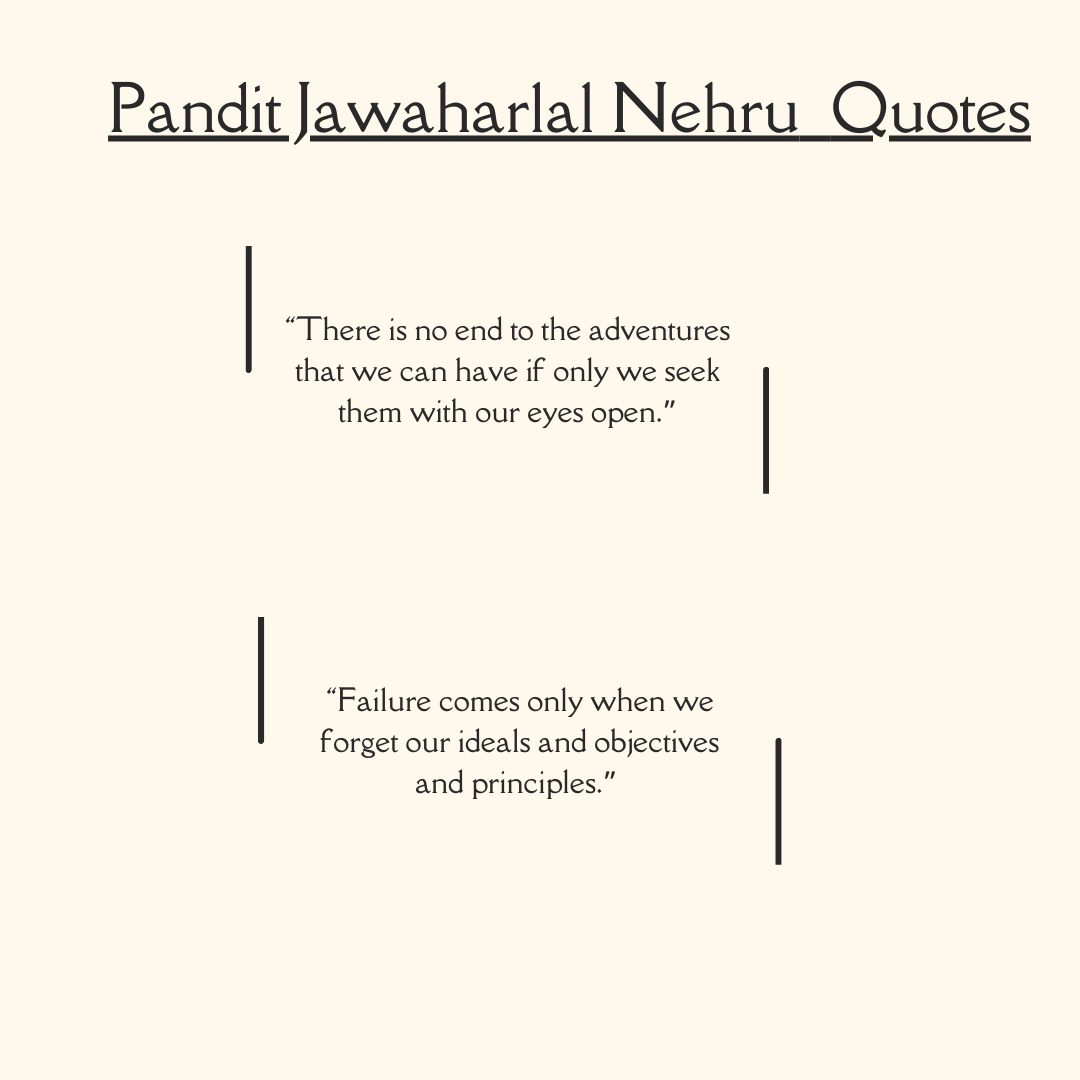
Pandit Jawaharlal Nehru was born on November 14, 1889, in Allahabad, India. He grew up in a wealthy family and went to England for his higher education. He studied at Harrow and then at Trinity College, Cambridge.
Contributions to India
Nehru was a major leader in India's fight for independence from British rule. He was a close follower of Mahatma Gandhi.
- After India gained independence in 1947, he became the 1st Prime Minister of India. He held this position until he died in 1964.
- Nehru played a big role in shaping modern India. He worked hard for a democratic and secular India. He also worked on improving education and created many institutions of higher learning like the Indian Institutes of Technology (IITs) and the Indian Institutes of Management (IIMs).
- Nehru also focused on industrialization and set up many factories and industries in India.

Mahatma Gandhi
Mahatma Gandhi, born on October 2, 1869, in Porbandar, Gujarat, was the leader of the Indian independence movement against British rule.
He is known worldwide for his doctrine of nonviolent protest (satyagraha) to achieve political and social progress. Gandhi's philosophy was deeply rooted in the principles of 'Ahimsa' (non-violence) and 'Satya' (truth). He played a critical role in India's freedom struggle and inspired numerous civil rights movements around the world. His birthday is commemorated as Gandhi Jayanti in India and observed globally as the International Day of Non-Violence.
Sardar Vallabhbhai Patel
Sardar Vallabhbhai Patel, also known as the 'Iron Man of India,' was born on October 31, 1875, in Nadiad, Gujarat. He was a leading figure in the Indian independence movement and later became the first Deputy Prime Minister of India.
Patel is best known for his role in the integration of over 500 princely states into the Indian Union, which was crucial in creating a united India. He was instrumental in establishing the administrative structure of the newly independent country and is revered for his strong leadership and diplomatic skills.
B. R. Ambedkar - Father of Indian Constituition

Dr. Bhimrao Ramji Ambedkar was born on April 14, 1891, in Mhow in Madhya Pradesh.
He rose from humble beginnings to become one of India's most influential leaders. Despite facing social discrimination as a Dalit, Ambedkar excelled in academics. He studied at Elphinstone College, Mumbai, and later went on to study at Columbia University in the United States and the London School of Economics in the UK, where he earned multiple doctorates in law, economics, and political science.
Fight Against Social Discrimination
Ambedkar's most significant contribution was his tireless struggle against the caste system in India. He campaigned against social discrimination towards the untouchables (Dalits) and other marginalized groups. His efforts led to the emancipation and upliftment of millions of people subjected to social injustice.
Principal Architect of the Indian Constitution
Ambedkar's crowning achievement was his role as the principal architect of the Constitution of India. As the Chairman of the Drafting Committee of the Constituent Assembly, he played a pivotal role in drafting the Indian Constitution, ensuring that it guaranteed equality and justice for all, irrespective of caste, religion, or gender.
Political Career
In addition to his legal and academic pursuits, Ambedkar had an active political career. He founded the Independent Labour Party, which later evolved into the All India Scheduled Castes Federation. He was appointed as the first Law Minister of Independent India but resigned from the Cabinet in 1951 due to differences with the Nehru-led government on the Hindu Code Bill, which sought to codify and reform Hindu personal law.
Campaign for Women's Rights
Ambedkar was a strong advocate for women's rights. He fought for the legal system to recognize women's rights, particularly in marriage and inheritance. His efforts were instrumental in shaping laws that uplifted the status of women in Indian society.
Educational Contributions
Ambedkar emphasized the importance of education for the upliftment of Dalits and encouraged members of marginalized communities to pursue education as a means to improve their social status.
Literary Works
Ambedkar was a prolific writer and scholar. Some of his notable works include "Annihilation of Caste," "The Buddha and His Dhamma," and "Who Were the Shudras?" His writings continue to influence scholars and activists around the world.
Ambedkar passed away on December 6, 1956, but his legacy continues to inspire millions. In 1990, he was posthumously awarded the Bharat Ratna, India's highest civilian award. His birthday, April 14, is observed as Ambedkar Jayanti and is a public holiday in India. Ambedkar is remembered as a symbol of equality, social justice, and the fight against discrimination, and his contributions continue to shape modern India.
Rajendra Prasad
Dr. Rajendra Prasad, born on December 3, 1884, in Siwan, Bihar, was the first President of India, serving from 1950 to 1962.
He was also a major leader during the Indian Independence Movement. A close associate of Mahatma Gandhi, Prasad played a crucial role in the formation of the Indian National Congress's constitution and guided the country through the transition from colonial rule to a republic. He is remembered for his simplicity, integrity, and dedication to the nation.
Atal Bihari Vajpayee
Atal Bihari Vajpayee, born on December 25, 1924, in Gwalior, Madhya Pradesh, was a distinguished politician who served three terms as the Prime Minister of India. He was a member of the Bharatiya Janata Party (BJP) and is known for his poetic oratory skills and moderate political views.
Vajpayee's tenure as Prime Minister is notable for several significant events, including the 1998 Pokhran-II nuclear tests and efforts to improve diplomatic relations with Pakistan. He was also instrumental in promoting economic reforms and infrastructure development in India. His governance was marked by a pragmatic approach and a vision for a modern India.
Famous Personalities of India: Quick Facts for Students
India is a land of rich history and culture and has produced many famous personalities who have made significant contributions in various fields. Here are some quick facts about a few notable brave Indian soliders:
Sam Manekshaw (7th Chief of the Army Staff, India)
Field Marshal Sam Hormusji Framji Jamshedji Manekshaw, also known as Sam Bahadur ("Sam the Brave"), was the chief of the Indian Army during the Bangladesh Liberation War in 1971 and the first Indian Army officer to be promoted to the rank of field marshal.
His military career spanned four decades, beginning with service in World War II.
Field Marshal K.M.Cariappa
Field Marshal K.M. Cariappa was a notable Indian military leader and the first Indian Commander-in-Chief of the Indian Army.
In 1986, he was promoted to the honorary rank of field marshal, recognizing his outstanding service to India.
K.M. Cariappa is one of only two Indian Army officers to achieve the five-star rank of field marshal, alongside Sam Manekshaw
General K.S. Thimayya
General Kodendera Subayya Thimayya, DSO (31 March 1906 – 18 December 1965) was the 3rd Chief of Army Staff from 1957 to 1961 during the crucial years leading up to the conflict with China in 1962.
Current Famous Indian Personalities 2025
Neeraj Chopra
Neeraj Chopra, an Indian track and field athlete, is a Subedar Major who specializes in the javelin throw. His most significant accomplishment is winning the gold medal at the 2020 Olympics, & becoming the 1st Asian athlete to achieve this feat in the javelin throw event.
First Asian to win the javelin gold at the World Athletics Championships in 2023.
Medha Patkar
Medha Patkar is an Indian social activist who advocates for the rights of tribal communities, Dalits, farmers, laborers, and women facing injustice in India. She is an alumna of the Tata Institute of Social Sciences, a leading institute for social science research in India.
Arundhati Bhattacharya
Arundhati Bhattacharya is a pioneering Indian banker and corporate leader. She made history as the first woman to serve as Chairperson of the State Bank of India and currently holds the position of CEO and Chairperson at Salesforce India. In recognition of her outstanding contributions to banking and technology, she was awarded the Padma Shri in January 2025. Bhattacharya remains a powerful and inspiring presence in India’s corporate landscape.
🏆 Trailblazing Entrepreneurs: 2024 witnessed a surge of inspiring entrepreneurs who are revolutionizing various industries. Gaurav Dwivedi, founder of Skillmatics, is transforming educational experiences through innovative learning tools.
Parth Bansal, co-founder of Teachmint, is empowering educators with technology-driven solutions. These individuals are shaping the future of India's entrepreneurial landscape.
💡 Visionary Leaders: Inspiring personalities like Dr. Manoj Sharma, founder of the Centre for Social Entrepreneurship, and Dr. Manish Kumar Singh, an educationist and social entrepreneur, are driving social change.
Rohan Rawat, founder of the Nirmaan Organization, is empowering rural communities through sustainable development initiatives. These leaders are making a significant impact on India's social and economic progress.
🏏 Sporting Legends: Virat Kohli, the iconic cricketer, continues to inspire millions with his dedication and sportsmanship. He is a role model for aspiring athletes and a symbol of India's sporting excellence.
Shubman Gill made his first-class debut in 2017 and quickly established himself as a promising batsman. He was the leading run-scorer in the 2018-19 Ranji Trophy and played a key role in Punjab's victory.
These are just a few examples of the many famous personalities who have shaped India's history and culture. Each of them has left a lasting legacy and continues to inspire and influence people in India and around the world.
Summarise with AI:














